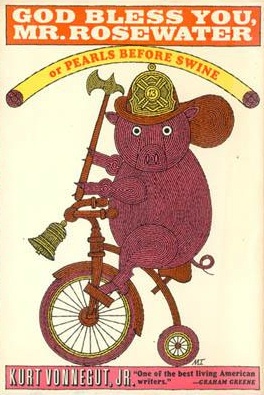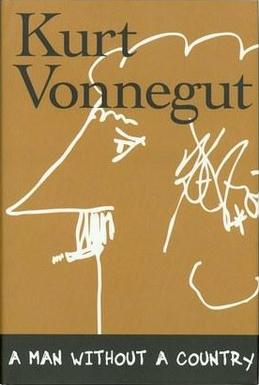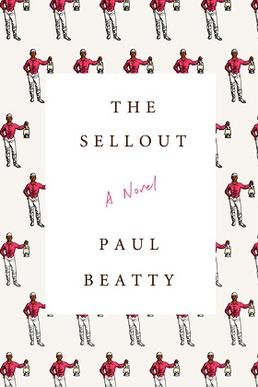Biography
Sam Moffie was born in Newton, Massachusetts. He was the victim of a hit and run accident in 2006. As he recuperated, his long-held dream of becoming a fiction writer started percolating in his brain, and soon he started writing. Now, he is on his fifth book.
Moffie decided not to publish his work through mainstream publishing houses. Thus, he has achieved both critical and popular appeal as one of the many pioneers in the exploding self-publishing market, which has turned the conventional book publishing industry inside-out with its success. Moffie writes fiction loaded with humor, satire and frequent social and political commentary. Some of his works feature and discuss Wittenberg University in Springfield, Ohio where Moffie attended college (1978–1982). As a member of the Beta Theta Pi fraternity, it isn't uncommon to see many of his fraternal brothers appear somewhat disguised in some of his works.
Swap was Moffie's first novel, published in 2007. The novel is loosely based upon an obscure real-life incident between former New York Yankees' pitchers Mike Kekich and Fritz Petersen, who, in the 1970s, actually traded their wives, children and pets to one another. Moffie changed their team to The Cleveland Indians and set his novel in Youngstown, Ohio (his hometown). Swap is memorable for very quirky characters such as the lead protagonist Sheldon Marsh who, like Moffie, is deaf in his right ear. Another memorable character is Sheldon's mother who is known simply as "Sheldon's mother". She dispenses wisdom like a blazing fastball to the head and also happens to be addicted to movies. Swap was named a finalist in humor by the 2007 Midwestern Small Press Association.
Frustrated at the lack of attention that his manuscript for Swap got from mainstream literary agents and publishing houses, Moffie disguised one of his favorite novels first chapter - Breakfast of Champions by Kurt Vonnegut - into a manuscript that Moffie called The Perfect Martini, and sent it to the top 100 literary agents in America. Ninety-nine out of 100 passed on the work - a feat that Moffie, when speaking at various functions, has used to highlight how difficult it is to get literary fiction featuring satire, humor and conventional culture getting kicked in the tush published. However, Moffie's piece on this venture did get noticed by Kurt Vonnegut's son Mark (himself an award-winning author) who told Moffie about a weekend where Mark's father and his friend Jerzy Kosinski got drunk and disguised one of Jerzy's books, just like Moffie did with Kurt's. This tid-bit from Mark shows up in Moffie's 4th novel The Book of Eli.
Moffie was very involved in politics in college and in his hometown of Youngstown, Ohio where he has run for office a few times (all unsuccessful but memorable campaigns). Politics features prominently in some of his works because of his activism.

Kurt Vonnegut was an American writer and humorist known for his satirical and darkly humorous novels. In a career spanning over 50 years, he published fourteen novels, three short-story collections, five plays, and five nonfiction works; further collections have been published after his death.

Philip José Farmer was an American author known for his science fiction and fantasy novels and short stories.

Cat's Cradle is a satirical postmodern novel, with science fiction elements, by American writer Kurt Vonnegut. Vonnegut's fourth novel, it was first published in 1963, exploring and satirizing issues of science, technology, the purpose of religion, and the arms race, often through the use of morbid humor.

Slaughterhouse-Five, or, The Children's Crusade: A Duty-Dance with Death is a 1969 semi-autobiographic science fiction-infused anti-war novel by Kurt Vonnegut. It follows the life and experiences of Billy Pilgrim, from his early years, to his time as an American soldier and chaplain's assistant during World War II, to the post-war years, with Billy occasionally traveling through time. The text centers on Billy's capture by the German Army and his survival of the Allied firebombing of Dresden as a prisoner of war, an experience which Vonnegut himself lived through as an American serviceman. The work has been called an example of "unmatched moral clarity" and "one of the most enduring anti-war novels of all time".

Breakfast of Champions, or Goodbye Blue Monday is a 1973 novel by the American author Kurt Vonnegut. His seventh novel, it is set predominantly in the fictional town of Midland City, Ohio, and focuses on two characters: Dwayne Hoover, a Midland resident, Pontiac dealer and affluent figure in the city, and Kilgore Trout, a widely published but mostly unknown science fiction author. Breakfast of Champions deals with themes of free will, suicide, and race relations, among others. The novel is full of drawings by the author, substituting descriptive language with depictions requiring no translation.
John Barnes is an American science fiction author.

The Sirens of Titan is a comic science fiction novel by Kurt Vonnegut Jr., first published in 1959. His second novel, it involves issues of free will, omniscience, and the overall purpose of human history. Much of the story revolves around a Martian invasion of Earth.

Player Piano is the first novel by American writer Kurt Vonnegut Jr., published in 1952. The novel depicts a satirical of automation partly inspired by the author's time working at General Electric, describing the negative impact technology can have on quality of life. The story takes place in a near-future society that is almost totally mechanized, eliminating the need for human laborers. The widespread mechanization creates conflict between the wealthy upper class, the engineers and managers, who keep society running, and the lower class, whose skills and purpose in society have been replaced by machines. The book uses irony and sentimentality, which were to become hallmarks developed further in Vonnegut's later works.

God Bless You, Mr. Rosewater, or Pearls Before Swine, Kurt Vonnegut's fifth novel, was published in 1965 by Holt, Rinehart and Winston and as a Dell mass-market paperback in 1970. A piece of postmodern satire, it gave context to Vonnegut's following novel, Slaughterhouse-Five and shared in its success.

Charles Richard Johnson is a scholar and the author of novels, short stories, screen-and-teleplays, and essays, most often with a philosophical orientation. Johnson has directly addressed the issues of black life in America in novels such as Dreamer and Middle Passage. Johnson was born in 1948 in Evanston, Illinois, and spent most of his career at the University of Washington in Seattle.
Kilgore Trout is a fictional character created by author Kurt Vonnegut. Trout is a notably unsuccessful author of paperback science fiction novels.

A Man Without a Country is an essay collection published in 2005 by the author Kurt Vonnegut. The essays deal with topics ranging from the importance of humor, to problems with modern technology, to Vonnegut's opinions on the differences between men and women. Many of the essays explicate Vonnegut's views about politics and the issues in modern American society, often from a humanistic perspective.
The bibliography of Kurt Vonnegut (1922–2007) includes essays, books and fiction, as well as film and television adaptations of works written by the Indianapolis-born author. Vonnegut began his literary career with science fiction short stories and novels, but abandoned the genre to focus on political writings and painting in his later life.
Fiction in the 1970s brought a return of old-fashioned storytelling, especially with Erich Segal's Love Story. The early seventies also saw the decline of previously well-respected writers, such as Saul Bellow and Peter De Vries, both of whom released poorly received novels at the start of the decade, but rebounded critically as the decade wore on. Racism remained a key literary subject. John Updike emerged as a major literary figure with his 1971 novel Rabbit Redux. Reflections of the 1960s experience also found roots in the literature of the decade through the works of Joyce Carol Oates and Wright Morris. With the rising cost of hardcover books and the increasing readership of "genre fiction", the paperback became a popular medium. Criminal non-fiction also became a popular topic. Irreverence and satire, typified in Kurt Vonnegut's Breakfast of Champions, were common literary elements. The horror genre also emerged, and by the late seventies Stephen King had become one of the most popular novelists in America, a coveted position he maintained in the following decade.

The Kurt Vonnegut Museum and Library is dedicated to championing the literary, artistic, and cultural contributions of the late writer, artist, and Indianapolis native Kurt Vonnegut, Jr. It opened in January 2011 and was located in The Emelie, a structure on the National Register of Historic Places at 340 North Senate Avenue in Indianapolis, Indiana, until January 2019. Funding for a new building at 543 Indiana Avenue was secured, and the library reopened to the public on November 9, 2019.
Robert T. Tally Jr. is a professor of English at Texas State University. His research and teaching focuses on the relations among space, narrative, and representation, particularly in U.S. and comparative literature, and he is active in the emerging scholarly fields of geocriticism, literary geography, and the spatial humanities. Tally is the editor of "Geocriticism and Spatial Literary Studies," a Palgrave Macmillan book series established in 2013. The translator of Bertrand Westphal's Geocriticism: Real and Fictional Spaces and the editor of Geocritical Explorations, In addition to his numerous essays on literature, criticism, and theory, Tally has written books on Herman Melville, Edgar Allan Poe, Kurt Vonnegut, and J.R.R. Tolkien's The Hobbit, as well as a critical introduction to the work of literary critic and theorist Fredric Jameson.

Andrej Blatnik is a Slovene writer, editor, and university professor.
Ig Publishing is a New York-based press devoted to publishing original literary fiction and political and cultural nonfiction. The editor is writer Robert Lasner, and the publisher is Elizabeth Clementson. The press was founded in 2002.

The Sellout is a 2015 novel by Paul Beatty published by Farrar, Straus and Giroux, and in the UK by Oneworld Publications in 2016. The novel takes place in and around Los Angeles, California, and muses about the state of racial relations in the U.S. today. In October 2016, it won the Booker Prize, making Beatty the first US writer to win that award.

Kurt Baumeister is an American novelist, essayist, critic, and poet. His debut novel, a satirical thriller entitled Pax Americana was selected as a Best Book of 2017 by [PANK] Magazine. He has written for Salon, Rain Taxi, Electric Literature, Guernica, Entropy, The Nervous Breakdown, The Rumpus, The Good Men Project, and others. He has an MFA in creative writing from Emerson College and is a contributing editor at The Weeklings. "Review Microbrew," his review column, is published by The Nervous Breakdown. Baumeister is an editor with 7.13 Books in Brooklyn, NY.













